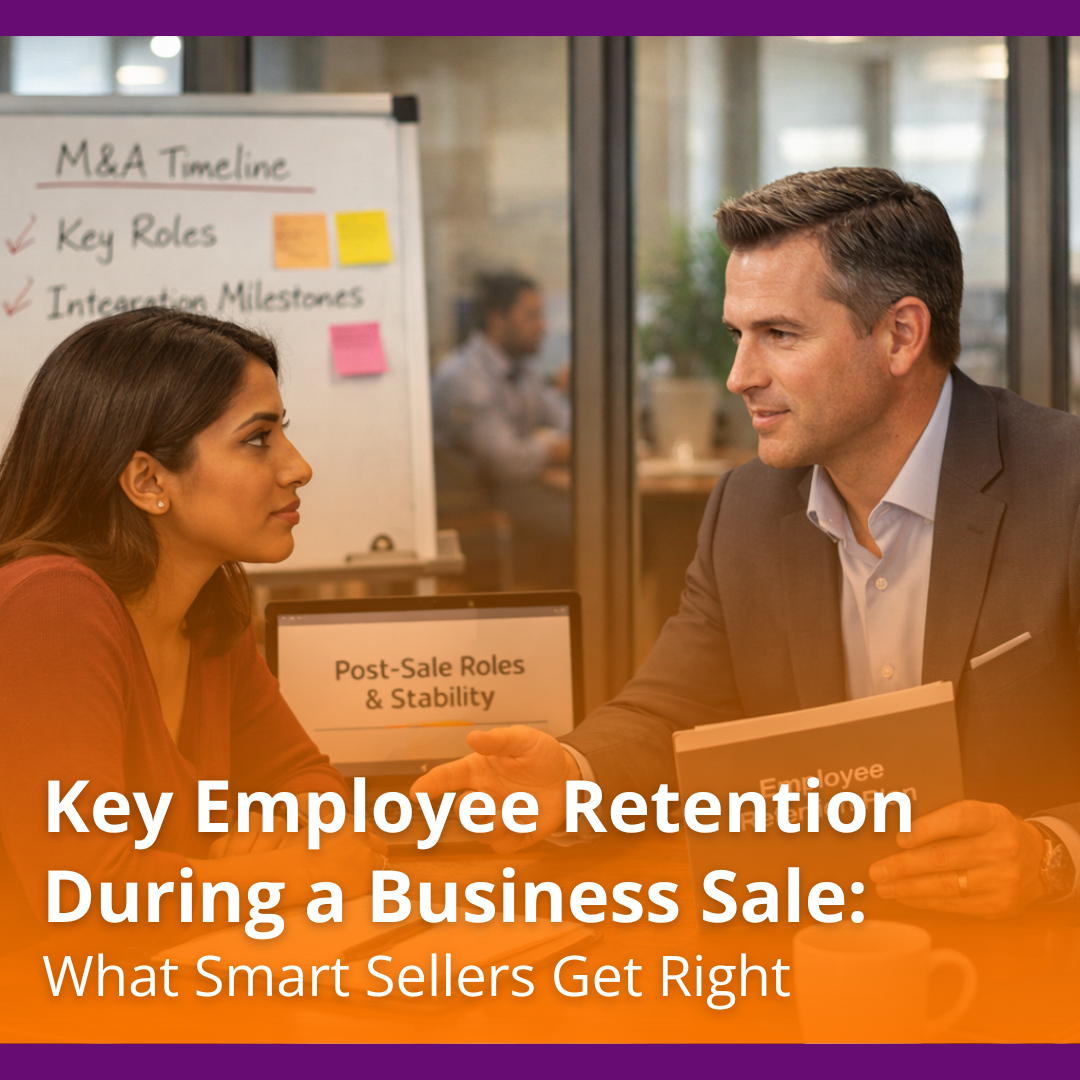How to Know If You’re Emotionally Ready to Sell Your Advisory Practice
You have pictured the day you sell your advisory practice. The deal closes. The pressure lifts.
Comprehensive, data-driven valuations and comparative equity analyses to accurately price your practice, establish market benchmarks, and support informed decision-making.
Comprehensive M&A guidance encompassing deal structuring, negotiation strategies, market listings, and transaction closings.
Comprehensive systems, targeted coaching, and in-depth assessments designed to optimize operational efficiency and enhance advisory team effectiveness.
Strengthen continuity through the implementation of formal continuity agreements, the establishment of legal entities, execution of enforceable legal contracts, and securing appropriate capital resources.
3 min read
 Todd Doherty
June 30, 2025
Todd Doherty
June 30, 2025
.png)
Most advisors will only sell a practice once in their lifetime. It’s no wonder then that many advisors are woefully unprepared for that experience. Many also wait until they officially want to sell to start the process. They don’t take the time to educate themselves on the process and the many factors that can impact the timing, quality, and structure of their practice sale.
There are many things an advisor needs to consider if they plan to sell their practice in the next one to five years. First, advisors need to know what drives practice value and where their practice stands in the market. Practice value never holds steady. Without constant growth, practice value will eventually peak and decline. Advisors need to understand when that peak will occur so they can time their practice sale to receive the maximum return possible.
Next, advisors need to look at their practice operations and expenses to determine what obligations they have to vendors and staff. Long-term contracts and leases on things like office space and printers can impact an advisor’s ability to sell. Staff obligations can also impact the value of a practice, especially if there are a disproportionate number of high-cost staff members serving low value clients. Many buyers are willing to take on new staff and will work with the selling advisor to transition staff to the new practice, but it’s still important to know how your staffing choices impact the value of the practice and the transition process.
Advisors also need to be aware of how long it will take to source a qualified successor and work through a transition. Generally, advisors should expect it to take 12-18 months from start to finish to work through a practice sale and transition if they don’t have a known successor. This includes listing the practice with a quality practice sales service, vetting buyers, negotiating the deal, transitioning clients, and working through any claw back clause timeframes and attrition requirements. There are a few things that can make this process smoother and improve the likelihood of an advisor finding the right successor. This includes defining why you are selling your practice, creating an opportunity pipeline and plan for engaging client heirs, developing a communication strategy for transitioning clients, and providing support throughout the transition. We outline these items in detail in our free white paper, 10 Steps To Prepare Your Practice For Sale.
Last advisors need to consider utilizing an experienced M&A consultant to support them in their journey. As we mentioned earlier, most advisors will only sell a practice once in their lifetime. An advisor’s practice is one of the largest if not the largest asset they own. It’s an important transaction, representing the culmination of a career and decades of hard work. Because of its importance and the lack of experience, advisors shouldn’t try to take the DIY approach to their practice sale. An experienced M&A consultant can bring a proven process, industry best practices, a network of vetted buyers, and above all, an objective third-party point of view. Often, advisors who sell with the help of a Successions Expert receive premiums of 30%-40%, thanks to their ability to position the practice and its growth potential. Also, most M&A consultants have strong relationships with support teams at each of the broker-dealers and wirehouses, allowing them to bring insider knowledge and resources to further help streamline the process. This is especially true should an advisor choose to sell to a buyer outside of their platform and they need to repaper clients as part of the transition.
Overall, advisors shouldn’t take their practice sale lightly. There are many nuances to making a transaction successful and to securing as much equity as possible. Advisors need to educate themselves early on, so they can make smart decisions about the timing and action steps they need to take to ensure a quality succession. Even advisors looking to sell ten years down the line need to actively think about their succession. Steps an advisor takes today can have a tremendous impact on the opportunities they have tomorrow. This is even more true when it comes to the most important transaction of their life and the legacy it leaves behind.

Todd Doherty serves as Vice President for Advisor Legacy, where he leads advisors through the full M&A lifecycle—readiness, valuation analysis, buyer/seller matching, due diligence, and post-close integration. With more than 15 years in senior roles at financial advisory firms and hands-on ownership experience, Todd brings an operator’s lens to every engagement. His writing focuses on practical ways to boost enterprise value, structure win-win deals, and avoid execution risk. Todd collaborates closely with the firm’s valuation, lending, and legal partners to help advisors make confident, data-driven decisions.
Receive timely articles, tip sheets, events, and more right in your inbox.

You have pictured the day you sell your advisory practice. The deal closes. The pressure lifts.

Selling a company is often the largest financial event of a business owner’s life. Yet most exit conversations still revolve around valuation and...

Are you preparing to sell your business with a team you want to keep intact? Then you’re already thinking ahead. The moment a sale is in motion, your...